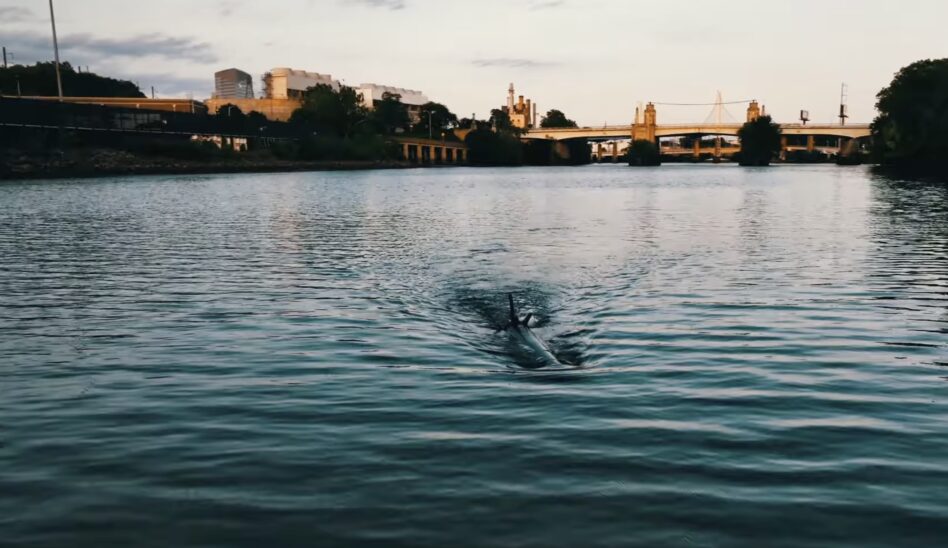Maritime autonomy on the surface has had its time in the sun—a startup out of this year’s Y Combinator class is taking the hype underwater.
In an exclusive release to Tectonic, Albacore, a Philadelphia-based startup making long-range unmanned underwater vehicles (UUVs), announced it has raised a $6.5M seed round led by Outlander VC with participation from Brave Capital, D3, Alumni Ventures, and a whole bunch more.
Just keep swimming: Albacore’s first offering on the table is an autonomous mini-submarine called the Ghostfin. It’s about 8 feet long, weighs 400 pounds, and has the capacity to carry a 250-pound kinetic payload (which has been tested in the water). The company says the Ghostfin can be launched from pretty much anywhere by a couple of people, though its lead engineer can allegedly bench press it.
Albacore’s main goal with the Ghostfin, however, is maximizing range—it can travel about 1,000 nautical miles.
Big fish: Those specs clearly got investors excited, and Albacore’s new team is stacked with some notable VCs.
- On the US side, Outlander, BoxGroup, Alumni Ventures, Karman Ventures, and Pioneer Fund joined defense specialists Brave Capital, RSquared VC, and R-G.AI.
- On the other side of the pond, Ukraine-focused funds UA1 and D3, which put its third check into Albacore, teamed up with German firms Heliad and 468 Capital in the round.
- The founders of Dive Technologies, which was acquired by Anduril and spun into their Dive-LD UUV, are angel investors, and Neros’ co-founder and CEO, Soren Monroe-Anderson, is a close advisor.
Albacore is led by Dante Vaisbort, who previously founded a still-active startup focused on extending battery life in unmanned systems, and John Huddleston, a mechanical engineer who worked with government agencies and companies on unmanned systems manufacturing and procurement at Boston Consulting Group. The company now has 17 full-time employees.
Vaisbort said they were initially targeting a $3M seed round, but the interest from investors with deep defense expertise in the US and Europe pushed the raise up to $6.5M.
Making a splash: According to him, there were three reasons for that defense brainpower rushing for a seat at the cap table:
- Investors with military backgrounds or experience in the industry know autonomy is “super investable.”
- The undersea environment has a small number of players, and there is a trend towards “smart torpedoes” rather than endurance UUVs.
- Albacore’s focus on making a long-range strike and loitering munition that is “actually able to do a mission by itself, cover large distances of the ocean, and strike a target from a significantly greater standoff distance.”
“We don’t want to tell the Navy how to fight its wars, but what we can do is give more operational flexibility that the Navy has said is needed,” Vaisbort added. “We’re not trying to live in R&D land—we’re trying to live in the ‘fight tonight’ land, and we’re going to be using this money to get there very fast.”
Albacore has already tested prototypes, including water-testing with a kinetic payload. They’re set to demonstrate Ghostfin to DoD partners in January and at the Balikatan military exercise in the Philippines next year, with some other exercises and tests in between. They expect to start selling the UUV after an initial production run in mid-2026.
For now, they’re focused on finalizing the production design so it can be mass-manufactured, work reliably, and meet operator needs.
A $6.5M seed round with some defense tech big-brains at the table is nice, but Vaisbort said the “real prize is thousands of these in the water, American undersea dominance secured, and Philadelphia reindustrialized.”

